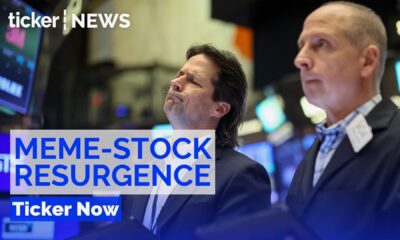Money
WFH officially over as Zoom orders employees back to office
-



 Shows1 day ago
Shows1 day agoSimplifying complex cyber security
-



 Shows2 days ago
Shows2 days agoThe Dragon’s Tale
-



 Leaders2 days ago
Leaders2 days agoThe risk of avoidance: planning your estate
-



 Shows2 days ago
Shows2 days agoThe Mayor, the Hollywood star and his Pioneering Parents
-



 News1 day ago
News1 day agoApple responds to crushing iPad Pro criticism
-



 News2 days ago
News2 days agoEV market witnesses unprecedented price cuts
-



 Tech1 day ago
Tech1 day agoOne year later, how is Xbox’s acquisition of Activision paying off?
-



 Money1 day ago
Money1 day agoWhy the meme-stock frenzy is unlikely to repeat






